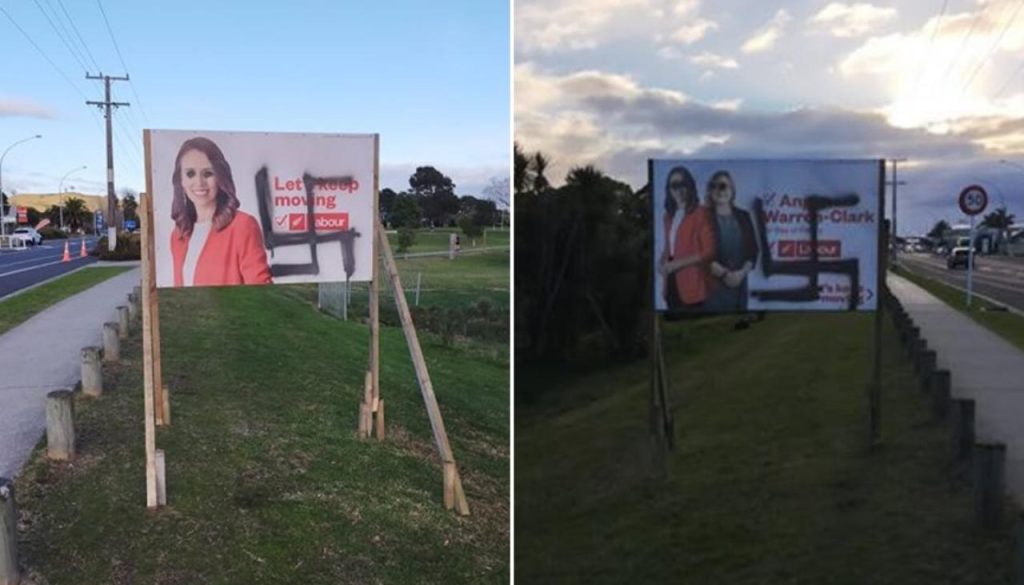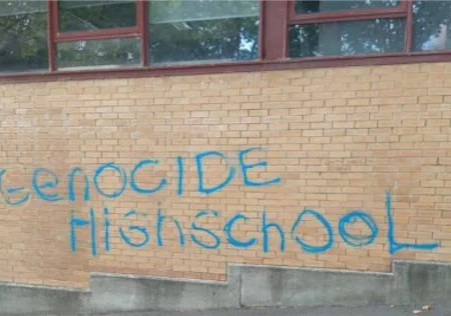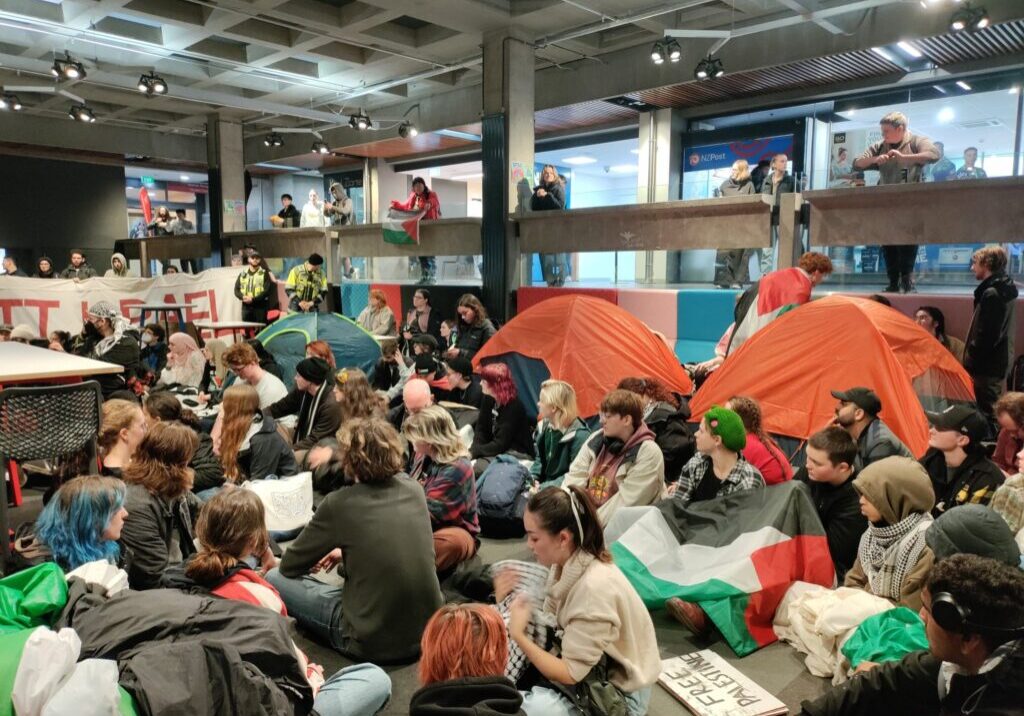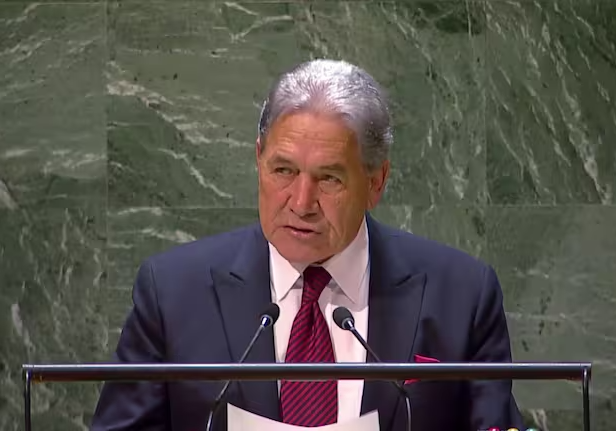Australia/Israel Review
AIR New Zealand: False Analogies
May 3, 2023 | Miriam Bell

Concern about the deployment of Nazi analogies and misuse of the Holocaust in New Zealand public discussion were widespread last year, when an anti-vaccine and anti-lockdown protest movement was in full swing.
But inaccurate, inappropriate and offensive public references to Nazism and the Holocaust in public discourse did not stop when the protestors’ occupation of the Parliament’s grounds in Wellington came to a violent end in March 2022.
Instead, they have continued, particularly on social media, and may have even increased.
One high-profile example came in April, when it was revealed that National Party candidate Stephen Jack had reposted a poem on Facebook which compared former Prime Minister Jacinda Ardern to Adolf Hitler.
The poem, apparently written by a Balclutha farmer, contained the lines “Just as Hitler had the SS, our prime minister’s on the job. She’s given up on the police and bought the Mongrel Mob.”
It was not a first offence for Jack, who had earlier made a sexist joke online. It led to him withdrawing his candidacy.
Another recent example of Holocaust misappropriation came in tweets by Maori academic Dr Rawiri Taonui, a member of the National Anti-Racism task force.
One tweet said: “Hitler exercised an unfettered right to free speech and look where that ended.”
Another tweet said: “The anti-Semitic persecution of the Jewish people and the equal & opposite suppression of the Palestinian people are among the saddest cases of genocide over the last 100 years.”
Dr Taonui was called out over his tweets by the Holocaust & Antisemitism Foundation, which said they misrepresented history, and that it was a falsehood to suggest Israel had committed genocide against the Palestinians, or that its treatment of them was at all comparable to what happened to Jews under Nazism.
Victoria University Associate Professor of History Giacomo Lichtner pointed out in a 2022 article on The Conversation that such abuse of Holocaust analogies is hardly new, and there is a long history of exploitation of the Holocaust for political ends, from causes on the left and right, as a way to try to increase legitimacy and impact.
But “social media and the active dissemination of conspiracy theories had made [the trend] global,” he said.
Holocaust Centre of NZ Chair Deb Hart said there is no firm data on whether there had been an increase in this trend in New Zealand in recent years, but “based on anecdote, we are seeing more of this kind of thing.”
It was very much in evidence around the time of the parliamentary occupation – not just during it, but also before and afterwards, she said.
A good example was the posters that were put up around Wellington, which featured a yellow Star of David with “unvaccinated” in the middle.
Such false equivalence belittles the enormity of the Holocaust and led to situations where people equated the murder of six million Jews with situations that bore no reasonable comparison, Hart said.
“A lack of knowledge plays a part in it… People use, or refer to, the ‘Holocaust’, and ‘genocide’, as shorthand without understanding what they were.
“They just know they were bad, and so they use the words to say something was really bad. But these words matter, and they should not be used to describe situations which may be awful, but are not the same.”
Where misappropriation occurred, people were beholden to call it out, and the Holocaust Centre did that. But addressing it also spills over into the education sphere too, she said.
“We teach the Holocaust to bear witness to the lives that were lost, and also as a protective measure – to show… how hate starts small, and what to do to prevent hate from growing.”
NZ Jewish Council spokesperson Juliet Moses agreed there seemed to have been a rise in the use of Nazi analogies over recent months and years.
“The pandemic gave rise to a lot of these analogies, with different leaders as Hitler, the unvaccinated as persecuted Jews, and so on, but there are other New Zealand examples.
“In the wake of the [controversial woman’s rights activist Posie Parker’s visit to New Zealand and Australia in late March] accusations have been flung around about Nazis (quite apart from the neo-Nazis who were present at a rally in Melbourne), for example. And there were Dr Taonui’s tweets recently.”
Moses thought the increase had multiple causes. The first was that, as we move further in time away from the Holocaust, there is increasing ignorance about it.
Another reason was that we live in times where people believe advancing a dominant narrative is more important than objective truth, or that such a thing as objective truth does not even exist, she said.
“Thirdly, while I don’t always think [such analogies are necessarily] antisemitic as such, there is a rise in antisemitism, and when such tactics are wielded against Jewish people, such as accusing Israelis of being the new Nazis, then it’s antisemitism,” Moses said.
Tags: Holocaust, New Zealand






